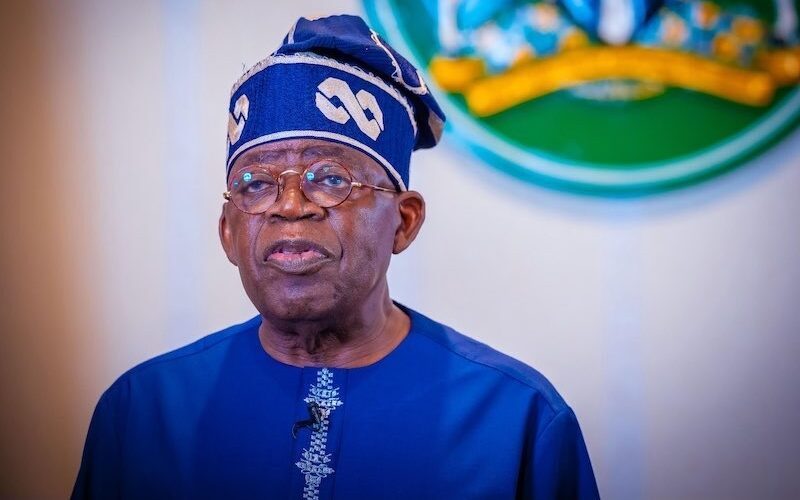•Severe in Ekiti, Kebbi, Niger, others
•Varsity don hails price moderation as boost to investor sentiment, macro-economy
Ndubuisi Francis and James Emejo in Abuja
The Consumer Price Index (CPI), which measures the rate of change in prices of goods and services, eased to 23.71 per cent in April compared to 24.23 per cent in March, National Bureau of Statistics (NBS) said yesterday.
According to the CPI report for April 2025, which was released by the statistical agency, month-on-month, inflation stood at 1.86 per cent in April, from 3.90 per cent in March.
Headline inflation stood at 9.99 per cent, year-on-year, compared to 33.69 per cent in April 2024, using the 2009 base year, before rebasing, NBS stated.
The three major contributors to headline inflation included food and non-alcoholic beverages, which accounted for 9.49 per cent, restaurants and accommodation services contributed 3.06 per cent, and transport, which contributed 2.53 per cent.
On the other hand, alcoholic beverages, tobacco, and narcotics; and recreation, sport, and culture were the least contributors at 0.09 per cent, and 0.07 per cent, respectively.
Food inflation declined year-on-year in April to 21.26 per cent, compared to 40.53 per cent in April 2024.
According to NBS, the significant decline in food annual inflation was technically due to the change in the base year for CPI estimation.
However, on a month-on-month basis, the food index dropped to 2.06 per cent from 2.18 per cent in March.
The decrease in food prices was attributed to the rate of decrease in the average prices of maize flour, dried okro, yam flour, soya beans, rice, bambara beans, and brown beans among others.
Core inflation, which excludes the prices of volatile agricultural produces and energy, declined to 23.39 per cent year-on-year in April, compared to 26.84 per cent in April 2024.
Month-on-month, core inflation stood at 1.34 per cent in April, from 3.73 per cent in the preceding month.
In the newly introduced sub-index, farm produce contributed 2.64 per cent to inflation; energy, 9.21 per cent; services 3.44 per cent; and goods 3.89 per cent.
Year-on-year, urban inflation was 24.29 per cent in April 2025 while the index stood at 1.18 per cent, month-on-month, compared to 3.96 per cent in March.
Rural inflation stood at 22.83 per cent year-on-year, in the review period. Month-on-month, the index dropped to 3.56 per cent, from 3.73 per cent in March.
At state level, headline inflation, year-on-year, was highest in Enugu (35.98 per cent), followed by Kebbi (35.13 per cent), and Niger (34.85 per cent), while Ondo (13.42 per cent), Cross River (17.11 per cent), and Kwara (17.28 per cent) recorded the lowest rise in prices.
On a month-on-month basis, however, inflation was highest in Sokoto (16.26 per cent), Nasarawa (16.02 per cent), and Niger (14.74 per cent), while Oyo (-6.45 per cent), Osun (-4.54 per cent), and Ondo (-3.44 per cent per cent) recorded the lowest rise.
Equally, at the sub-national, food inflation, year-on-year was highest in Benue (51.76 per cent), Ekiti (34.05 per cent), Kebbi (33.82 per cent), while Ebonyi (7.19 per cent), and Adamawa (9.52 per cent), while Ogun (9.91 per cent) recorded the slowest rise.
Month-on-month, food inflation was highest in Benue (25.59 per cent), Ekiti (16.73 per cent), and Yobe (13.92 per cent), while Ebonyi (-14.43 per cent), Kano (-11.37 per cent) and Ogun (-7.06 per cent) recorded decline in food inflation.
Boost to Economy
Reacting to the slowdown in inflation, former Vice Chancellor, Nasarawa State University, Professor Mohammed Mainoma, said the decline represented a boost to investor sentiment and a positive signal in Nigeria’s
Mainoma, who is also a Fellow of the Capital Market Academics of Nigeria (CMAN) and President of the Association of National Accountants of Nigeria (ANAN), said, “The recent easing of headline inflation to 23.71 per cent in April 2025, as reported by the National Bureau of Statistics (NBS), is a positive signal, albeit modest, in the context of Nigeria’s ongoing macroeconomic adjustment efforts.
“From my perspective, there are several key implications for the Nigerian equities market and the broader economy.”
Mainoma added that a decline in inflation, even marginal, tended to boost investor sentiment, particularly in the equities market. He said decline suggested some easing in cost pressures and a potential shift in monetary policy stance.
He stated that consumer-facing sectors, like fast moving consumer goods (FMCGs), may benefit from improved purchasing power, translating into better earnings and valuation potential.
Mainoma stated, “However, at 23.71 per cent, inflation remains significantly above the central bank’s comfort zone, so interest rates may still remain tight, which could limit liquidity available for stock market investments in the short term.”
On monetary policy outlook, the professor of accounting and finance who is currently Vice Chancellor of Prime University, Abuja, argued that a sustained easing trend could encourage the CBN to pause further rate hikes, or even consider rate adjustments that favour growth, especially in the non-oil sector.
“Investors will closely monitor CBN’s next move, as it has direct implications on portfolio flows and bond-equity allocations,” he said.
Regarding economic sentiment and household impact, Mainoma explained that while 23.71 per cent inflation rate is still high, any reduction brings psychological relief to households facing months of eroded purchasing power.
He added that for businesses, it may signal a gradual reduction in cost of raw materials and transport, improving operational efficiency and profitability.
In the area of real sector confidence, the academic affirmed that lower inflation, if sustained, improves business planning confidence, encourages capital expenditure, and supports credit expansion.
“It may also support the informal sector and SMEs, who are disproportionately affected by inflation volatility.
“This easing in inflation is not yet a turning point, but it is a hopeful marker. For the equities market, it may strengthen the case for long-term investment in growth-sensitive sectors.
“For the broader economy, it signals that policy stabilisation efforts are gaining some traction, though sustained and coordinated fiscal-monetary reforms are still required to consolidate this gain.”


